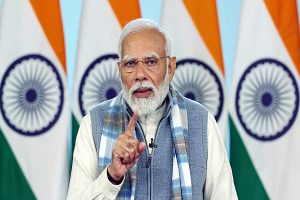Number 10 Downing Street will boast a new resident this week. Beyond such ceremonial changing of the guard, so to speak, Britain’s next Prime Minister, Liz Truss, had a smaller margin of victory on Monday than any of her predecessors, suggesting she might have to work hard to heal a governing party deeply divided and lagging in opinion polls. No less forbidding is the economic crisis. There is little doubt that the contest with Rishi Sunak was closely contested, which itself is suggestive of the bickering within the ruling Conservatives, one that appears to have exacerbated post Brexit. After a bitter contest, Truss won 57 per cent of the votes from Conservative Party members compared to 43 per cent for her rival, the outgoing Chancellor of the Exchequer.
The margin, although seemingly comfortable, was not as overwhelming as some polls suggested. Truth to tell, it was the narrowest victory since Conservative members were given a say on who to elect as their party leader in 2001. Ms Truss has a lower level of support among Conservative lawmakers than any of her predecessors in this century. Despite the grandstanding after Tuesday’s swearing-in at the Queen’s Balmoral Estate in Scotland, indubitable must be the reality that politically the ruling Tories are on a sticky wicket. Polls during the leadership campaign suggested that Truss’s victory margin would be larger.
A YouGov poll in August had Truss at 69 per cent to Sunak’s 31 per cent. “It was closer than expected,” said Andrew Bridgen, a Conservative lawmaker. om One must give it to Ms Truss that she was remarkably gracious in her acceptance speech. She has ruled out a snap election and promised to deliver a “great victory” for the Conservative Party at the next general election in 2024. In terms of the fallout in the United Kingdom, Scotland’s leader, Nicola Sturgeon, who wants her country to break away from the rest of the United Kingdom, and Frances O’Grady, the general secretary of the Trades Union Congress, mocked the scale of the victory.
Sturgeon pointed out that the size of Truss’s victory was smaller than the support Scotland would need to win independence under a new law she is said to be considering. Truss is planning a new referendum bill that would mean Scotland could only win independence if 50 per cent of those entitled to vote were in favour, not just a majority of those who voted. O’Grady said the size of her win would not meet the threshold that Truss wants unions members to have to declare for workers to legally strike in the future. In 2019, Truss’s predecessor Boris Johnson, who was forced to resign over a string of scandals, won 66 per cent of the vote. Suffice it is to register that British history has entered a new phase and the world must hope that the power vacuum will be filled.
A version of this story appears in the print edition of the September 8, 2022, issue.












